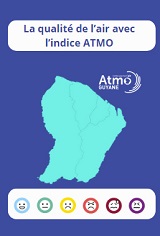Blada.com
jeudi 24 avril
Boîtes aux lettres
Courrier des lecteurs
Petites annonces
Emploi / Formation
Covoiturage
Infos citoyennes
Infos citoyennes
10/02/21
Un dispositif inédit de vaccination dans les pharmacies de Guyane
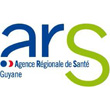 Dans les officines, les professionnels de santé peuvent distribuer des bons aux personnes répondant aux critères de vaccination. Ce dispositif s’ajoute à l’orientation réalisée par les médecins traitants auprès de leurs patients. « Cette démarche me paraît s’inscrire tout à fait dans le rôle attendu du pharmacien dans le déploiement de la vaccination pour toute la population guyanaise », se réjouit Liliane Pognon, présidente de l’URPS Pharmaciens.
Dans les officines, les professionnels de santé peuvent distribuer des bons aux personnes répondant aux critères de vaccination. Ce dispositif s’ajoute à l’orientation réalisée par les médecins traitants auprès de leurs patients. « Cette démarche me paraît s’inscrire tout à fait dans le rôle attendu du pharmacien dans le déploiement de la vaccination pour toute la population guyanaise », se réjouit Liliane Pognon, présidente de l’URPS Pharmaciens.
Les professionnels de santé sont en première ligne pour repérer, parmi leurs patients, les personnes prioritaires pour la vaccination, pour les informer et les orienter. Les médecins libéraux dans leurs cabinets, leurs confrères hospitaliers, et les pharmaciens aussi. « En attendant que les pharmaciens puissent vacciner, nous nous sommes rendus compte que la population est souvent présente dans nos pharmacies, surtout le public présentant des comorbidités, relate le Dr Liliane Pognon, présidente de l’URPS Pharmaciens. Dans nos officines, ces patients passent souvent une ou deux fois par mois alors qu’ils ne vont parfois qu’une fois tous les trois mois chez leur médecin traitant. Nous sommes donc bien placés pour orienter ces patients. »
 Avec son confrère le Dr Fabien Sublet, pharmacien à Matoury, elle a été contactée par l’ARS Guyane qui souhaitait aider les pharmaciens à orienter ces patients vers les centres de vaccination. C’est ainsi que l’ARS leur a proposé des « bons de vaccination ». Ils sont distribués à partir d’aujourd’hui dans les pharmacies.
Avec son confrère le Dr Fabien Sublet, pharmacien à Matoury, elle a été contactée par l’ARS Guyane qui souhaitait aider les pharmaciens à orienter ces patients vers les centres de vaccination. C’est ainsi que l’ARS leur a proposé des « bons de vaccination ». Ils sont distribués à partir d’aujourd’hui dans les pharmacies.
En pratique, le pharmacien repère, parmi ses patients, les personnes prioritaires. Il leur signale qu’elles peuvent se faire vacciner immédiatement dans l’un des trois centres ouverts dans les hôpitaux de Cayenne, Kourou et Saint-Laurent du Maroni. Parmi elles, figurent en particulier les patients présentant deux des trois comorbidités suivantes : obésité (IMC supérieure à 29), diabète et hypertension artérielle. « Pour l’obésité, tous les pharmaciens sont équipés de balance et savent calculer un IMC, rappelle Liliane Pognon. Repérer les patients diabétiques ne pose pas non plus de difficultés avec les ordonnances. Ce peut être plus compliqué pour l’hypertension artérielle. Elle peut être pressentie en présence d’une affection longue durée (ALD). Mais le pharmacien ne connaît pas le motif de l’ALD, qui relève du secret médical. »; « Il faut que le pharmacien demande aux personnes qui sont en ALD si elles le sont pour l’hypertension », indique Fabien Sublet.
Dès lors, le pharmacien transmet au patient un bon sur lequel figure les modalités de prises de rendez-vous ainsi que les coordonnées des centres de vaccination. « Si le patient veut que l’on téléphone pour lui, on pourra le faire. Dans certaines pharmacies, où la population est moins autonome, ce sera sans doute nécessaire », précise Liliane Pognon qui montre l’exemple en ayant déjà reçu sa première injection.
Ce bon sera à remettre au médecin responsable du centre de vaccination, le jour du rendez-vous. « En dernier ressort, le médecin responsable du centre validera ou non l’orientation proposée par le pharmacien, souligne Liliane Pognon. Les médecins gardent la main dans leur cabinet. Mais ce dispositif inédit de la Guyane, en complément des procédures nationales, nous permettra de sensibiliser certains patients. Elle nous permettra aussi de rattraper des personnes de plus de 75 ans qui n’ont pas encore été vaccinées. Cette démarche me paraît s’inscrire tout à fait dans le rôle attendu du pharmacien dans le déploiement de la vaccination pour toute la population guyanaise. »
In pharmacies, health professionals can distribute vouchers to people who meet the vaccination criteria. This device is in addition to the guidance provided by treating physicians to their patients. "This approach seems to me to be perfectly in line with the expected role of pharmacists in the deployment of vaccination for the entire Guyanese population," says Liliane Pognon, president of URPS Pharmacists.
Health professionals are on the front line to identify, among their patients, priority people for vaccination, to inform and guide them. Liberal doctors in their offices, their hospital colleagues, and pharmacists too. "While waiting for pharmacists to be able to vaccinate, we realized that the population is often present in our pharmacies, especially the public with co-morbidities," says Dr Liliane Pognon, president of URPS Pharmacists. In our pharmacies, these patients often come once or twice a month while they sometimes only go once every three months to their attending physician. We are therefore well placed to refer these patients. "
With her colleague Dr Fabien Sublet, pharmacist in Matoury, she was contacted by ARS French Guiana who wanted to help pharmacists refer these patients to vaccination centers. This is how the ARS offered them "vaccination vouchers". They are distributed from today in pharmacies.
In practice, the pharmacist identifies priority people among his patients. He tells them that they can get the vaccine immediately in one of the three centers open in hospitals in Cayenne, Kourou and Saint-Laurent du Maroni. These include, in particular, patients with two of the following three comorbidities: obesity (BMI over 29), diabetes and high blood pressure. "For obesity, all pharmacists are equipped with scales and know how to calculate a BMI," recalls Liliane Pognon. Identifying diabetic patients does not pose any difficulty with prescriptions either. It can be more complicated for high blood pressure. It can be suspected in the presence of a long-lasting disease (ALD). But the pharmacist does not know the reason for the ALD, which is a medical secret. "The pharmacist must ask people who are on ALD if they are for hypertension," says Fabien Sublet.
From then on, the pharmacist sends the patient a voucher on which appears the arrangements for making appointments as well as the contact details of the vaccination centers. "If the patient wants us to phone for them, we can. In some pharmacies, where the population is less independent, this will undoubtedly be necessary, " says Liliane Pognon, who is setting an example by having already received her first injection.
This voucher will be given to the doctor in charge of the vaccination center on the day of the appointment. "As a last resort, the doctor in charge of the center will or will not validate the orientation offered by the pharmacist," says Liliane Pognon. Doctors keep their hands in their offices. But this unprecedented device from French Guiana, in addition to national procedures, will allow us to educate certain patients. It will also allow us to catch up with people over 75 who have not yet been vaccinated. This approach seems to me to fit perfectly into the role expected of the pharmacist in the deployment of vaccination for the entire Guianese population. "
Raccourcis

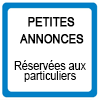
passer une petite annonce

passer une annonce de covoiturage
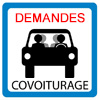

passer une annonce d’emploi
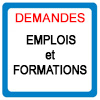
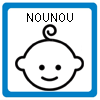
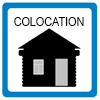
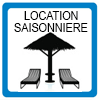

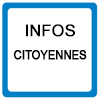
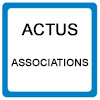
associations, postez vos actualités
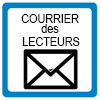
participez au courrier des lecteurs
La Guyane c’est ici
La qualité de l’Air avec
ATMO
Photothèque

Lancements 2022
Vol 259 Ariane 5



